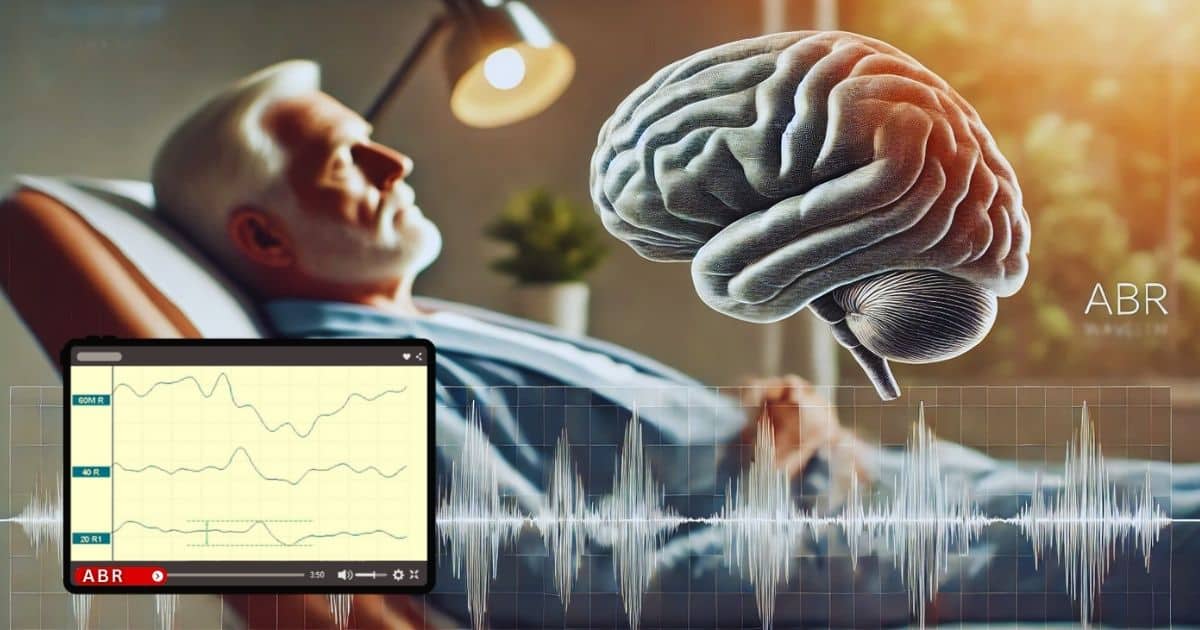For decades, Auditory Brainstem Response (ABR) testing has been a cornerstone in audiology, primarily used for assessing hearing thresholds in infants, difficult-to-test populations, and individuals with suspected auditory nerve or brainstem disorders. By measuring the brain’s electrical responses to sound stimuli, ABR offers an objective, non-invasive assessment of auditory pathway integrity.
However, a recent study published in Communications Biology reveals an exciting new application: ABR as a biomarker for predicting cognitive health in aging adults.
The study demonstrates that ABR can reliably predict cognitive performance, even after accounting for variables such as age and hearing loss. The findings suggest that ABR amplitude is more effective at identifying high cognitive performers, while latency better detects poor performers. These results, driven primarily by language-dependent cognitive functions, highlight ABR’s untapped potential in monitoring and predicting age-related cognitive decline.
How ABR Reflects Brain Function
ABR measures the brainstem’s electrical response to sound stimuli. In the study, participants aged 18 to 92 underwent ABR testing alongside cognitive assessments. Researchers observed that cognitive decline was more pronounced in older adults, with age emerging as a dominant factor in the triad relationship between age, hearing, and cognition.
The study also revealed that ABR wave V latency is more effective at identifying low cognitive performers, while amplitude better detects high performers. These results underscore ABR’s potential to differentiate between individuals at varying stages of cognitive health, offering a critical tool for early intervention.
Clinical Implications and Future Prospects
The findings hold significant promise for clinical practice. Unlike traditional biomarkers for cognitive health, such as MRI and PET scans, ABR is non-invasive, cost-effective, and can be conducted during sleep or sedation. This makes it especially valuable for older adults who may struggle with traditional cognitive testing.

Auditory Brainstem Response (ABR) testing has long been a key tool in audiology for objectively assessing hearing thresholds and diagnosing auditory nerve or brainstem disorders, particularly in infants and hard-to-test populations.
Moving forward, researchers hope to optimize ABR protocols for clinical use and explore its application in monitoring neurodegenerative diseases like Alzheimer’s. By identifying cognitive decline early, healthcare providers could implement targeted interventions to slow or prevent further deterioration.
These findings provide important evidence supporting the potential use of auditory brainstem responses in cognitive health assessments, highlighting their promise as a tool for identifying and monitoring age-related cognitive decline.
Reference:
Hamza, Y., Yang, Y., Vu, J. et al. Auditory brainstem responses as a biomarker for cognition. Commun Biol 7, 1653 (2024). https://doi.org/10.1038/s42003-024-07346-4
Source: Communications Biology






